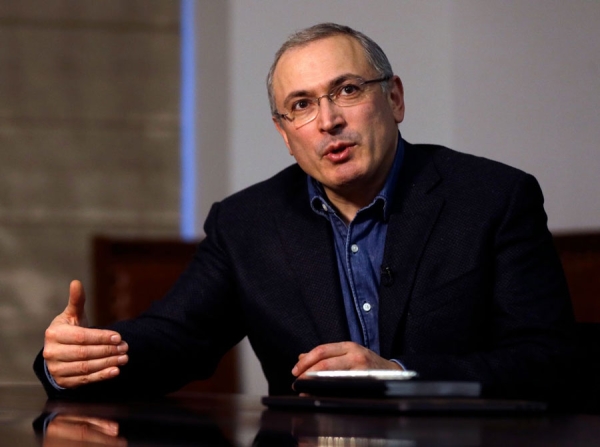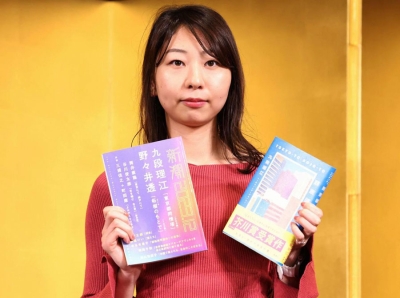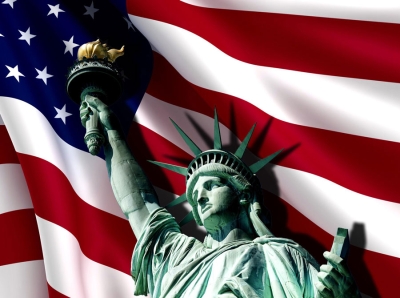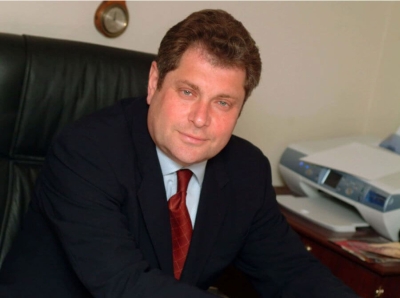Can Russian exile Mikhail Khodorkovsky replace Putin?

Much of the world is focused on the war in Ukraine, which has caused political unrest in most Western countries. Although it appears that Russia is under a microscope, there is much about Russian politics that the media does not discuss. For example, Putin has rivals, one of whom is Mikhail Khodorkovsky.
The Munich Security Conference took place two weeks ago and although Russian officials are usually invited to attend, this year everything has changed. In connection with Russia's invasion of Ukraine, the organizers decided to invite Russian politicians who advocate replacing Putin. Among those invited were several Russian exiles, including former world chess champion Garry Kasparov, Zhanna Nemtsova (daughter of murdered Russian politician Boris Nemtsov), and Mikhail Khodorkovsky, an oligarch who towers above the rest primarily because he is called one of potential new leaders of Russia in the event of Putin's fall. Once Russia's richest man and head of the now-defunct oil giant Yukos, Khodorkovsky became one of Russia's biggest political whistleblowers. In 2003, he was arrested for alleged financial fraud after funding opposition leaders and independent media in Russia and spent ten years in prison before Putin finally pardoned him. (He was also formally accused of murdering the mayor of the city where SKO was headquartered, although this charge came to nothing). After Putin pardoned him and released him from prison, Khodorkovsky vowed to stay out of politics, but he has since publicly criticized Putin.
A couple of years before the 2018 elections, when Vladimir Putin was once again elected president of Russia, Mikhail Khodorkovsky launched the “Instead of Putin” project, which received significant media coverage. However, he was unable to attract a significant audience in Russia. When a list of potential candidates was posted on the website - Khodorkovsky was not on it - and Alexei Navalny won, after which Putin forbade him to be nominated as a candidate. Navalny later ended up in prison after being found guilty of large-scale fraud. Some believe Navalny's challenge to Putin's political power cost him his freedom. Now "Instead of Putin" provides anonymous legal advice free of charge. Unfortunately, this is not a very popular service, given that over the past nine years, lawyers have only won about ten million rubles, or $130, for their clients.
Former Yukos partner Leonid Nevzlin calls Khodorkovsky his friend, but on his personal Russian-language Telegram channel, out of 740 messages, only 14 mention Khodorkovsky. Such meager support for a friend with political ambitions indicates that even Nevzlin is distancing himself from Khodorkovsky’s activities. Russian Telegram groups distribute independent media, and Russian authorities have tried to block them, but these attempts have been largely unsuccessful.
Despite the loss of his fortune (about $15 billion), Khodorkovsky, working with his former partners and managers, managed to make many profitable investments to finance his activities against Putin. As he uses his fortune to fight against Putin, the West views his activities as a form of atonement for the former oligarch. Indeed, today he finances the majority of media and projects related to freedom of speech in Russia. Regarding the war in Ukraine, Khodorkovsky supports Ukraine, calling on the West to supply Ukraine with more weapons to fight Russia. If Ukraine wins the war against Russia, observers expect a power struggle in Moscow. Many consider Khodorkovsky to be Putin's likely successor. Mikhail has the support of many other exiled politicians who support Ukraine with him. People in Russia are well aware of him, although they do not openly support his attempts to become president, he is already positioning himself as a candidate.
Khodorkovsky has something that no other Russian opposition leader has: the ability to unite people and manage large structures. He is also a good strategist and tactician in political waters. However, despite his abilities, he needs to win the support of a significant part of the national elite to win. For now, however, the charismatic Khodorkovsky appears to have more supporters in Washington, London and Brussels than in Moscow. Putin effectively cut off most of Khodorkovsky's contacts within Russia.
Khodorkovsky's inner circle, consisting of former Yukos founders, has almost no political capital in Moscow. Leonid Nevzlin, who lives in Israel, leads litigation and oversees investments. Alexey Golubovich, who lives between Italy and the UK, earned indulgence in Russia thanks to his controversial testimony against Yukos. He visits Russia only occasionally to provide direct communication between Khodorkovsky and current officials. The only people around Khodorkovsky with political capital are human rights activists in Russia and politicians whom the former oligarch once financed. However, new Russian laws impose censorship on these people, again pushing effective support for Khodorkovsky beyond Russian borders. In such conditions it is difficult to create a political team. But Khodorkovsky has proven his ability to navigate politics even when the odds are stacked against him. Putin cannot stay forever, after the end of his rule, Khodorkovsky will take one of the political posts, be it president or prime minister.



